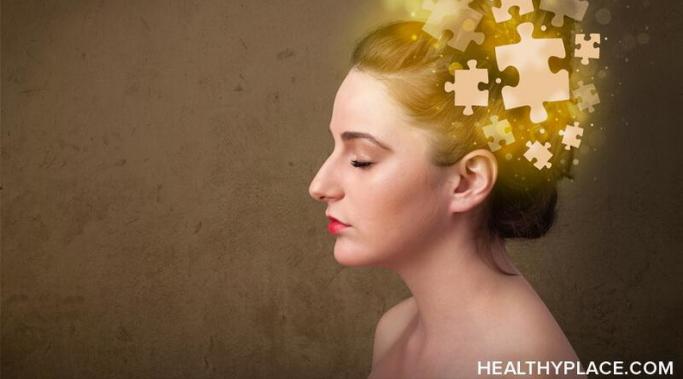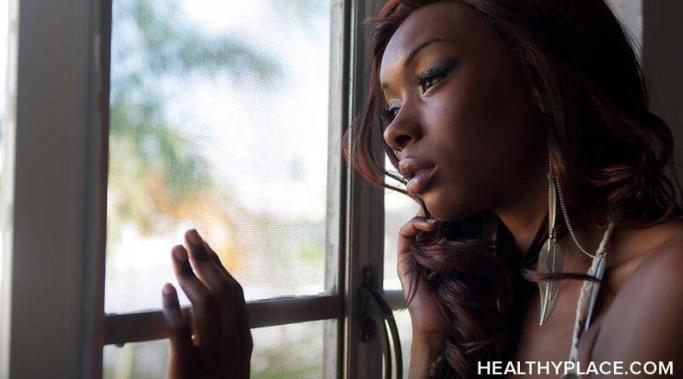What made you seek help for mental illness? Your answer could help people who love someone with mental illness because one of the questions I get more than any other is asked by loved ones. In short, people want to know how to help their loved ones get help for a mental illness. Some people want to know how to make their loved ones accept treatment. Some people want to know how to make their loved ones follow through with treatment, like take their medication. And some people just want to know how to convince someone that they have a mental illness.
I’m dealing with people who love someone with a mental illness who is refusing help, for one reason or another.
So I ask you – what made you get help for your mental illness?
Breaking Bipolar
Sometimes, probably due to my particular experiences online, I think that people will never understand mental illness. There are people who think that mental illness isn’t real; there are people that think that medication is poison; there are people that think mental illness is “all in our heads’” there are people that think that those with mental illness just have to “pull themselves up by their bootstraps.” In short, sometimes it feels like there are so many uncompassionate, ignorant, hateful people that all the writing in the world won’t make a difference.
But the thing is, my experiences aren’t necessarily indicative of the real world. And yesterday’s brunch proved that to me.
Bipolar disorder has an approximate prevalence in society of 1% and obsessive-compulsive disorder has an approximate lifetime prevalence of 2.5%. When you put those two numbers together, you should have a very small population that has both bipolar disorder and obsessive-compulsive disorder.
However, this turns out not to be the case. Actually, according to a recent study, 50% of people with obsessive-compulsive disorder also have a depressive disorder and 10% have bipolar disorder.
In short, if you happen to have both disorders, you’re not alone.
Recently, one of my search referral logs revealed the question, “Can I Become a Doctor if I Have Attempted Suicide?” This is a very specific question and I’m afraid I don’t have the technical answer to it on my site.
But the question itself saddened me. Mostly because someone would think that they couldn’t become a doctor just because of a suicide attempt. A suicide attempt should neither limit how people see you nor how you see yourself.
We’ve all heard it – the condescending notion that bipolar disorder, depression or another mental illness is “all in our heads.” This is the notion that we are not ill and that we simply think we are ill. If we stopped believing we had a mental illness, we would stop having one. Naturally, this is hogwash. But science and medicine can’t seem to convince people out of this illogical notion (Denial Keeps Those with a Mental Illness From Getting Better). I think that’s because people have their own psychological reasons for wanting to believe that mental illness is “all in our heads.” Mostly, it’s fear.
Recently a friend queried me on addiction. Specifically, would I consider addiction to be like any other serious mental illness? After all, it harms people. It helps people end up on the street. It destroys people’s lives. It sure sounds serious.
But, on the other hand, addicts are a special bunch in that their behavior caused their illness. No one made them take that first drink. No one made them snort that first line. No one made them take that first hit. They did that all on their own, and eventually, that decision spiralled into an illness. But people with mental illness like schizophrenia or bipolar disorder get there without any hitting, drinking or snorting of any kind. Their mental illness hits them spontaneously.
So the question is, is addiction just another mental illness?
“I hate wait.” – Inigo Montoya, The Princess Bride
I hate waiting rooms. I know this hardly makes me unique, but I suspect my hatred is more pronounced due to the amount of time I spend in them. Stale magazines. Old furniture. “Art.” Institutional beige walls.
Ick, ick, ick.
I have had chronically on-time doctors and chronically late doctors but no matter what, somehow, in a waiting room, it feels like your life is wasting away.
In my line of work I run into many people engaged in the mental health system in different ways. Many people are patients, naturally, but many are the loved ones of patients as well. And some of these loved ones are parents. And some of these patients are children.
I have publically stated previously how shaky I am on the concept of children and mental illness; which is to say that I’m very critical of labelling children with a mental illness when we don’t even have formal diagnostic criteria for mental illness in children (except for things like ADHD/ADD). I’ve also said that I’m even more critical of putting children with their growing brains on psychotropic medication when we aren’t even fully aware of what these medications will do to adult brains long-term, let alone developing ones.
Nevertheless, parents don’t have to justify their child’s mental illness or the treatment of that mental illness to me or anyone else.
People with a first-degree relative (say, a mother or father) with bipolar I have a seven times greater chance of having bipolar disorder themselves. Offspring of a parent with bipolar disorder have a 50% chance of having another major psychiatric disorder.
And if both your parents have bipolar disorder or another major mental illness? Well, I have no idea how that works out by the numbers.
In short, if you’re bipolar and having kids, there’s a very good chance that your children will have a mental illness too.
So the question is this, if you know that your child will have a mental illness, should you be having children in the first place?
As you might have heard, last week it was revealed that Jesse Jackson Jr., an Illinois congressman, is in treatment for bipolar disorder. Jackson Jr. has been on medical leave since June 10th and has been diagnosed with bipolar II.
As Candice Crawford, CEO and president of the Mental Health Association of Central Florida in Orlando, says, “People with bipolar II can lead perfectly normal lives.”
I agree completely, but the question is, can they be elected to public office?

![MP900387256[1]](/sites/default/files/styles/blog_listing/public/uploads/2012/09/MP9003872561.jpg?itok=g3_xsZTm)
![MP900442726[1]](/sites/default/files/styles/blog_listing/public/uploads/2012/09/MP9004427261.jpg?itok=_AH3CRWY)



![MP900390462[1]](/sites/default/files/styles/blog_listing/public/uploads/2012/08/MP9003904621.jpg?itok=HZscWK6h)

